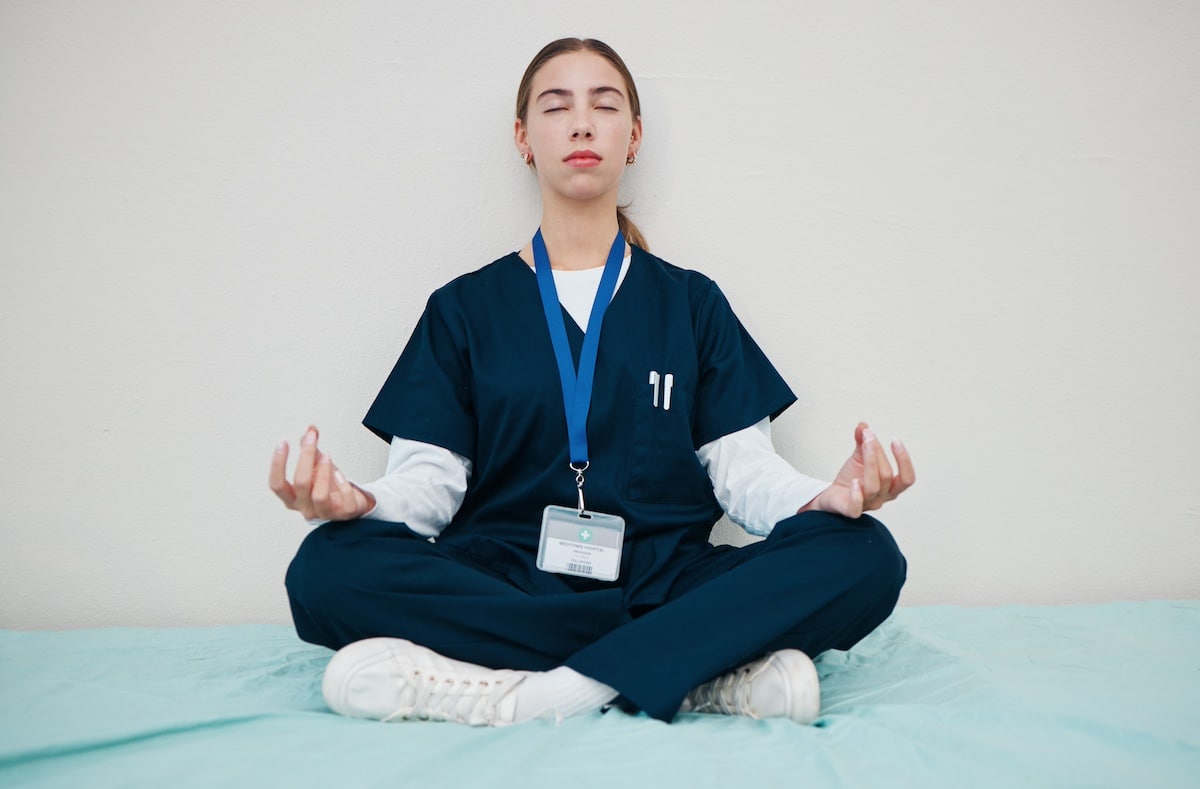
How to reduce stress for caregivers in hospital settings
In the high-pressure environment of hospital settings, caregivers find themselves on the frontline of patient care, frequently prioritizing the needs of others over their wellbeing. However, the importance of self-care for caregivers cannot be overstated. It is essential for maintaining their physical and mental health, preventing burnout, and ensuring they can continue providing high-quality care.
This article explores various strategies to reduce stress among caregivers, emphasizing the critical role of self-care in sustaining their emotional resilience and effectiveness.

Importance of Self-Care for Caregivers
The role of caregivers is pivotal in hospital settings. Often, the focus is so intense on patient care that caregivers’ needs are overlooked. However, self-care is not just a luxury; it’s a crucial aspect of maintaining the effectiveness and emotional resilience of those providing care.
Firstly, self-care fosters physical health. Caregivers are frequently exposed to physical strain, whether from long hours of standing or the manual handling of patients. Regular exercise, adequate sleep, and proper nutrition are vital. These not only bolster physical strength but also improve mental health. When caregivers neglect their wellbeing, it can lead to burnout, fatigue, and medical errors.
Moreover, emotional and mental health is paramount for caregivers. The emotional toll of caregiving can be profound, with regular exposure to suffering, critical situations, and sometimes death. Implementing stress-reduction techniques such as mindfulness, meditation, or even simple breathing exercises can significantly alleviate mental strain. Encouraging a culture where caregivers feel supported to discuss their stresses openly without judgment can further promote mental wellbeing.
Additionally, self-care practices help sustain high-quality care. A mentally and physically fit caregiver is more likely to be patient, empathetic, and alert to their patients’ needs. This not only enhances the care received by patients but also contributes to a more positive and supportive environment within the hospital setting.
Lastly, we invest in our healthcare system’s sustainability when we promote self-care among caregivers. Caregivers who feel supported and cared for are less likely to experience turnover, thus ensuring a stable and experienced workforce. This continuity is essential for maintaining hospital standards of care and operational efficiency.

Effective Communication in Supporting Caregivers
Effective communication is a cornerstone of reducing stress for caregivers in hospital settings. It involves exchanging information and emotional support that can be conveyed through thoughtful interactions. By fostering a prioritized communication environment, caregivers can feel more supported, understood, and less isolated in their roles.
Firstly, regular check-ins can play a critical role. These should not be limited to professional updates but invite caregivers to share their feelings and challenges. This open dialogue helps identify stress points early, allowing for timely interventions to prevent burnout. It also reinforces the caregivers’ value within the healthcare team, boosting morale and job satisfaction.
Moreover, communication skills training for caregivers and their supervisors can significantly enhance the quality of interactions. Effective training should cover active listening, empathy, and conflict resolution. These skills enable caregivers to articulate their needs better and equip management with the tools to respond appropriately, ensuring that concerns are addressed constructively.
Another vital aspect is implementing multidisciplinary team meetings. These meetings should include caregivers from various levels, allowing for a diverse range of insights and experiences to be shared. Such inclusivity improves patient care strategies and creates a sense of community and mutual respect among staff, which is crucial for mental wellbeing.
Feedback mechanisms also play an essential role. Encourage a culture where feedback is seen as a tool for growth and support rather than criticism. This can be achieved through anonymous feedback tools or regular surveys where caregivers can express their thoughts and suggestions without fear of repercussions.
Lastly, clear and compassionate communication from leadership about the challenges and changes in the hospital setting can help caregivers adjust their expectations and feel more secure in their roles. Knowing that the leadership acknowledges and is proactive about the realities they face can significantly alleviate anxiety and stress among caregivers.

Creating a Supportive Environment for Caregivers
One effective strategy is the development of ergonomic workspaces. Hospitals can reduce physical strain by ensuring that the work environment is designed with the caregivers’ health in mind. This includes adjustable beds, proper lighting, and easily accessible medical supplies, which help minimize the risk of injury and fatigue.
Additionally, fostering a team-oriented culture is crucial. Encourage regular team-building activities that boost morale and strengthen the bonds among staff members. This sense of community helps caregivers feel they are not alone, enhancing their resilience in handling day-to-day challenges.
Implementing flexible scheduling can also significantly reduce caregiver stress. Allowing caregivers greater control over their work hours can help them better manage their personal and professional responsibilities. This flexibility can lead to improved job satisfaction and reduced burnout.
Lastly, recognizing and rewarding caregivers’ hard work is vital. Simple acts of recognition, whether through awards, acknowledgments, or even verbal appreciation, can significantly uplift spirits and motivate staff. These gestures show that their dedication is seen and valued, contributing to a positive workplace atmosphere.

Utilizing Mindfulness Techniques for Stress Reduction
Mindfulness techniques have emerged as powerful tools for reducing stress. These practices help manage personal stress and enhance the overall care provided to patients. By incorporating mindfulness into daily routines, caregivers can significantly improve their mental health and resilience.
One effective mindfulness technique is guided meditation. This involves a structured session where caregivers are led through relaxation and visualization exercises. These sessions can be facilitated by a professional or accessed through digital platforms like ours at Humanoo. Regular practice helps center the mind, reduce anxiety, and promote a sense of calm.
Another beneficial practice is mindful breathing. Caregivers can use this technique during their shifts to immediately relieve stress. It involves focusing solely on the breath, observing each inhalation and exhalation to slow the mind’s racing thoughts. This can be particularly useful in high-pressure situations, helping caregivers maintain their composure and make better decisions.
Additionally, mindful walking between tasks can be a practical way for caregivers to incorporate mindfulness into their busy schedules. This involves walking slowly and deliberately, paying attention to each step’s sensation and the breath’s rhythm. Even a short five-minute mindful walk can reset the mind and reduce overwhelming feelings.
We also encourage the practice of body scans, which can be done before or after shifts. This technique involves mentally scanning one’s body to identify tension areas and consciously relaxing them. It helps recognize the physical manifestations of stress and address them proactively.
Lastly, integrating these mindfulness techniques into regular training programs ensures that caregivers are equipped to handle the emotional demands of their roles. A mindful caregiver is a more effective caregiver, and our platform is designed to support you by providing easy access to mindfulness resources that are both practical and adaptable to your needs.
Conclusion
Reducing stress for caregivers in hospital settings improves their wellbeing and the overall quality of patient care. Emphasizing the importance of self-care, fostering effective communication, creating supportive environments, and incorporating mindfulness techniques can create a more sustainable and compassionate healthcare system. Caregivers who are mentally and physically well-supported are more resilient, empathetic, and capable of providing the highest standard of care.
As you prioritize caregivers’ health and wellbeing, you help them manage the demanding nature of their roles and ensure that patients receive the best possible care. Investing in caregivers’ well-being is a crucial step toward achieving a more effective and humane healthcare environment for all.